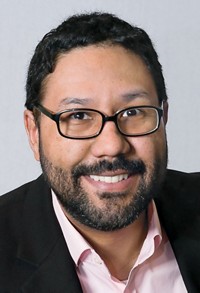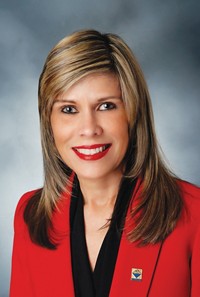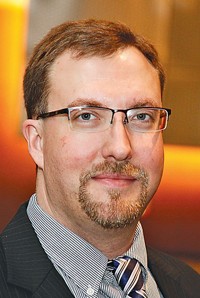Advertisement
Grab your lab coat. Let's get started
Welcome!
Welcome!
Create an account below to get 6 C&EN articles per month, receive newsletters and more - all free.
It seems this is your first time logging in online. Please enter the following information to continue.
As an ACS member you automatically get access to this site. All we need is few more details to create your reading experience.
Not you? Sign in with a different account.
Not you? Sign in with a different account.
ERROR 1
ERROR 1
ERROR 2
ERROR 2
ERROR 2
ERROR 2
ERROR 2
Password and Confirm password must match.
If you have an ACS member number, please enter it here so we can link this account to your membership. (optional)
ERROR 2
ACS values your privacy. By submitting your information, you are gaining access to C&EN and subscribing to our weekly newsletter. We use the information you provide to make your reading experience better, and we will never sell your data to third party members.
Comment
Catalyzing global connectivity among younger chemist communities
by Jens Breffke, Chair, ACS Committee on International Activities
October 14, 2018
| A version of this story appeared in
Volume 96, Issue 41

The American Chemical Society constitution sets forth an explicit path for the society to “cooperate with scientists internationally and ... be concerned with the worldwide application of chemistry to the needs of humanity” (Article II, Sec. 3). Our members, as volunteers, endeavor to carry out this provision through a remarkable array of programs and activities emanating from our networks and communities, including committees, local sections, technical divisions, international chapters, national and regional meetings, the ACS Fellows Program, and teaching and learning networks.
An opportunity exists to amplify this constitutional commitment among younger chemists and chemical engineers who are globally active in ACS and beyond. But they need practical support to enter and help sustain these networks and communities as they work to further their science through education, research, and publication and contribute as volunteers to ACS.
ACS is involved in numerous efforts to support younger chemists. The ACS Younger Chemists Committee (YCC), for example, brings together talented individuals dedicated to advocating for and providing resources to early-career chemists and professionals in the chemical sciences and related fields. YCC carries out its mission by advocating for younger chemists’ needs, concerns, and contributions; providing tools and support to younger chemists for diverse career opportunities and development; and fostering and connecting communities of younger chemists around the world. Many ACS local sections have their own YCC communities.
The Younger Chemists Crossing Borders initiative is an international exchange program between YCC and the European Chemical Society’s European Young Chemists’ Network. The program was launched in 2011 as part of the International Year of Chemistry and is being furthered through the International Year of the Periodic Table (2019). This program came out of an exchange program between the ACS Northeastern Section and the German Chemical Society. Through the initiative, younger chemists attend an international conference as well as engage in social, cultural, and professional exchange by visiting chemical companies, universities, and local points of interest.
My own committee, the ACS Committee on International Activities (IAC), is a resource for proactively advocating for, catalyzing, and implementing ACS international activities. We operate under six high-priority and high-impact activities, many of which serve younger chemists: (1) Build the International Younger Chemists Network, (2) provide continuing support for student exchanges and programs, (3) continue to help with mobility issues for scientists, (4) continue to interact and collaborate with sister chemical societies, (5) continue to support developing countries, and (6) increase awareness of chemistry in the world.
Another area in which ACS is supporting younger chemists is at scientific conferences. Since 1995, IAC has worked with the Pittsburgh Conference on Analytical Chemistry & Applied Spectroscopy and its sponsoring organizers to facilitate the participation of early-career analytical chemists from developing countries at Pittcon. Hundreds of young analytical chemists have participated in this program.
The International Younger Chemists Network (IYCN) supports younger chemists by creating a network that is inclusive in every possible way and welcomes members from the global scientific community. One of IYCN’s specific goals is to communicate to chemists in every country about the opportunity to join and develop this network. The current work of IYCN is to reach out to chemists of all nationalities.
Advertisement
ACS on Campus, ACS’s flagship outreach program to connect students, researchers, and faculty with leaders in chemistry, publishing, science communication, and career development, began in 2010 with events at a handful of universities. Today, the program’s events have been held at hundreds of institutions worldwide, and it continues to grow internationally.
The CAS SciFinder Future Leaders program is another ACS initiative; it’s aimed at expanding professional networks among emerging researchers, increasing knowledge and the exchange of ideas about the role of information within the research process, and sharing lessons from industry and academic leaders about the role of science in the global economy, academia, and the media.
What can we do as ACS members with international interests to help ACS staff and elected leadership think of innovative ways to connect these successful programs and initiatives? What can we do to help the community of globally aware and engaged younger chemists and chemical engineers feel meaningfully connected to ACS and by extension fulfill ACS’s constitutional mandate of international cooperation? I welcome your thoughts and suggestions at intlacts@acs.org.
Views expressed are those of the author and not necessarily those of C&EN or ACS.





Join the conversation
Contact the reporter
Submit a Letter to the Editor for publication
Engage with us on Twitter